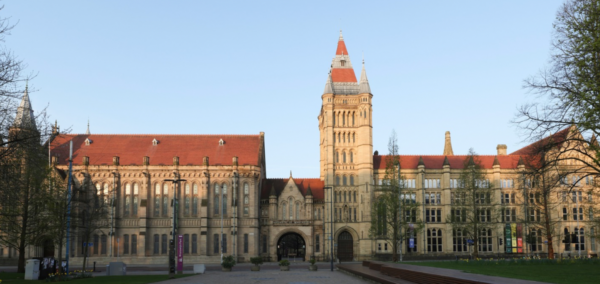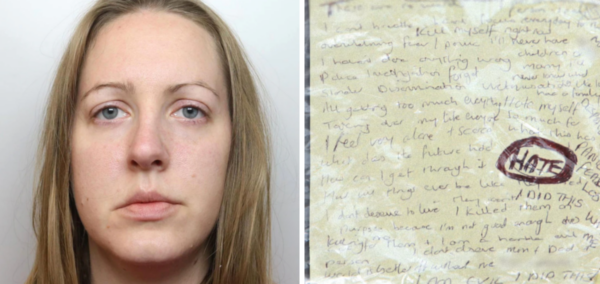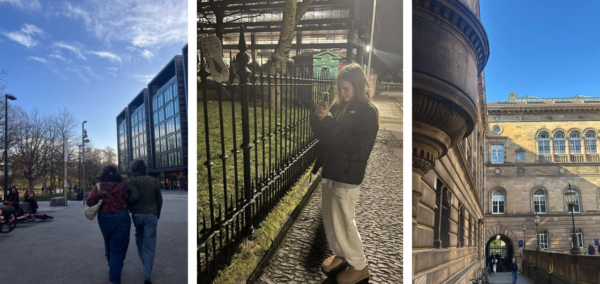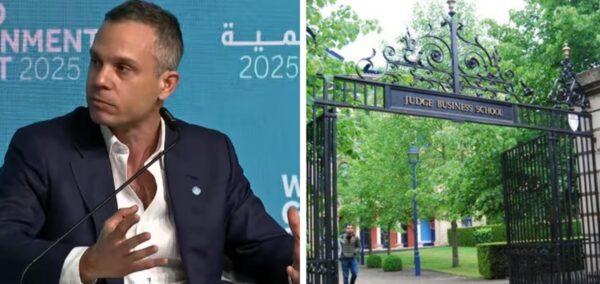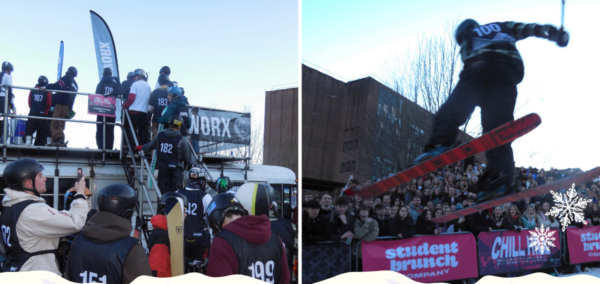
Queen Mary University is pressuring students to report their lecturers who are striking
The university’s app now features a ‘missed teaching’ section
Queen Mary University is recruiting students to keep tabs on staff, imploring them to report their lecturers for not showing up to class.
University management has been sending regular emails asking students to notify them of staff absences and has even introduced an in-app function for pupils to report staff for going on strike.
One second year student said it was “ridiculous that we are asked to fill out forms to dock the pay of lecturers” and that it is “disgusting that the vice chancellors’ pay remains so high.”

Screenshot of the Queen Mary app home page
UCU strikes have continued to affect teaching at Queen Mary, with disruptions in the first week and more expected. The dispute is in response to an exceptional policy of salary deduction at QM that sees staff not paid for work that they have done.
According to the QM branch of the UCU, the university threatened to withdraw 100 per cent of pay for every day that staff refused to reschedule work they had withdrawn on a strike day. This policy is especially detrimental due to the weeks of the Marking and Assessment Boycott – which saw staff carry out all of their work except marking – as, in line with the alleged QM policy, they would not be paid for any work done on those days. This comes despite QM-UCU claiming that marking only constitutes eight per cent of lecturers’ workload.
If followed through, the policy would effectively see a third of annual staff pay removed, fuelling the recent protests and strikes.
A Queen Mary spokesperson challenged the allegations, however, as unsubstantiated.
Most Read
QM-UCU was originally striking to challenge a continued real pay cut due to inflation, poor job security, and the protection of their pensions, with staff contributing more yet receiving less at retirement. The alleged policy of 100 per cent pay deductions has further fanned the flames and is contributing to the continued cycle of strikes.
In a statement to the BBC, the co-chair of the QM-UCU branch strongly criticised the measures.
He said: “This university has chosen to make this dispute about punishing staff rather than finding a better sector for everyone,” and that QM has “one of the most punitive responses in the country” to the previous strikes.
A QM-UCU blog post echoed these comments, denouncing their effect on negotiations.
The post read: “Senior management is issuing threats that non-compliance with impossible turn-over of marks are ‘disciplinary matters’,” and that “with a management as unreasonable as this, it is difficult to talk.”
For one of the most diverse unis, with the highest rate of social mobility in the Russell Group, this latest dispute is likely detrimental to QM’s image.
The strikes may be especially discouraging to prospective overseas students, many of whom pay over £20,000 a year in tuition fees, and whose continued arrival has been vital for the development of QM.
One second year student from Bulgaria said he “wouldn’t recommend” QM “because of all the disruption”, but would be staying at the uni and on his course.
Other institutions such as UCL and King’s called off their September strike action, but with no resolution in sight at QM, further picket lines and missed teaching are expected.
In response to these allegations, a Queen Mary University of London spokesperson said: “Throughout the six years of sector-wide industrial action, Queen Mary has maintained a policy of protecting our students’ education and moving the impact of industrial action to our other activities, including research and administration. We have done this because it is both the regulatory and moral duty of universities to ensure its students receive all their education.
“Therefore, from the outset of industrial action, we have communicated clearly and consistently that our first priority is to protect our students’ education and experience, which means that we accept that staff can stop, or deprioritise, all other activities including research, conferences and all non-educational activities.
“Aside from strike days, we do not withhold pay for staff who take part in industrial action so long as they prioritise and deliver all their core planned teaching activities.
“Less than 1 per cent of our staff have been participating in the current industrial action and the vast majority of our students have been unaffected. Industrial action at Queen Mary remains focused on a very small number of degree programmes. Only some of our students in English and Drama were unable to graduate in the Summer due to the marking and assessment boycott.
“Regarding our missed teaching form, which is used in a number of universities, there are many reasons why planned teaching may not take place. This form is one means by which we can identify missed teaching so that we can ensure the activity is made up.”
Related articles recommended by this author:
• Imperial College revealed as second largest beneficiary of fossil fuel funding among UK universities
• London students demand 100 per cent plant-based catering in multi-campus protest
• London students face highest risk of phone theft in the UK, new data reveals










